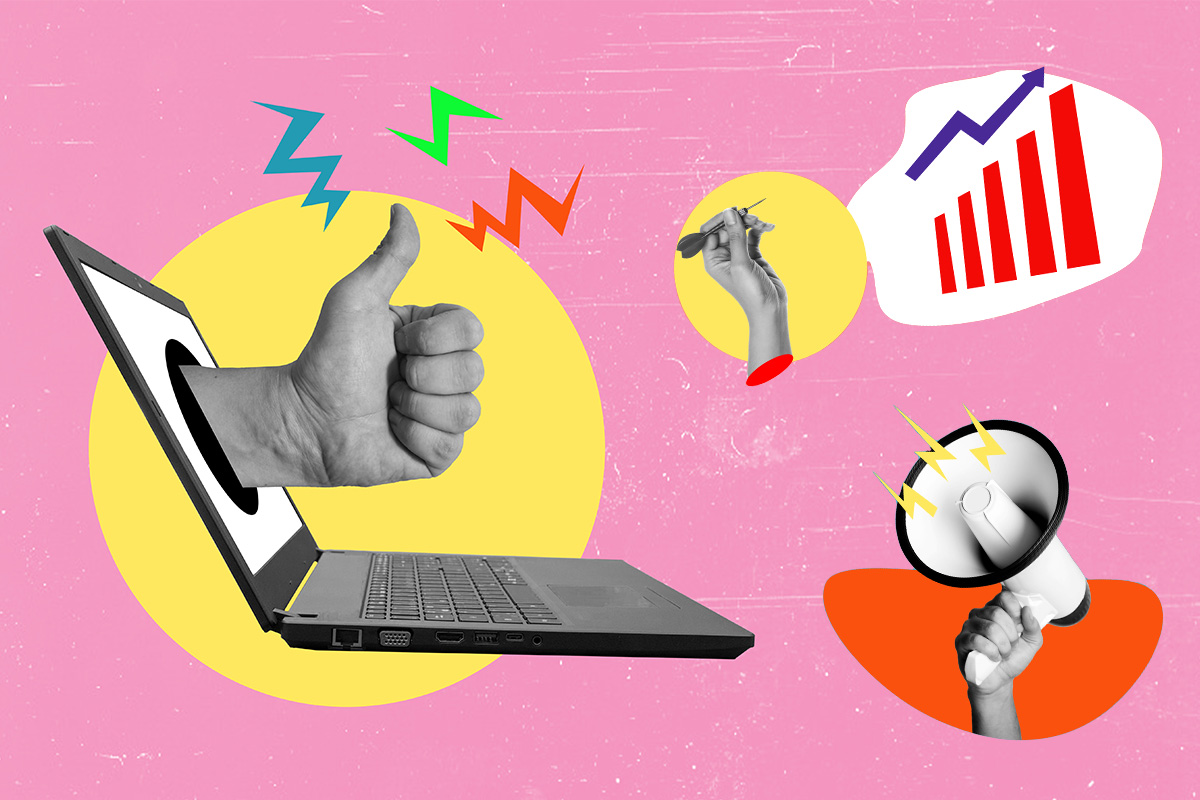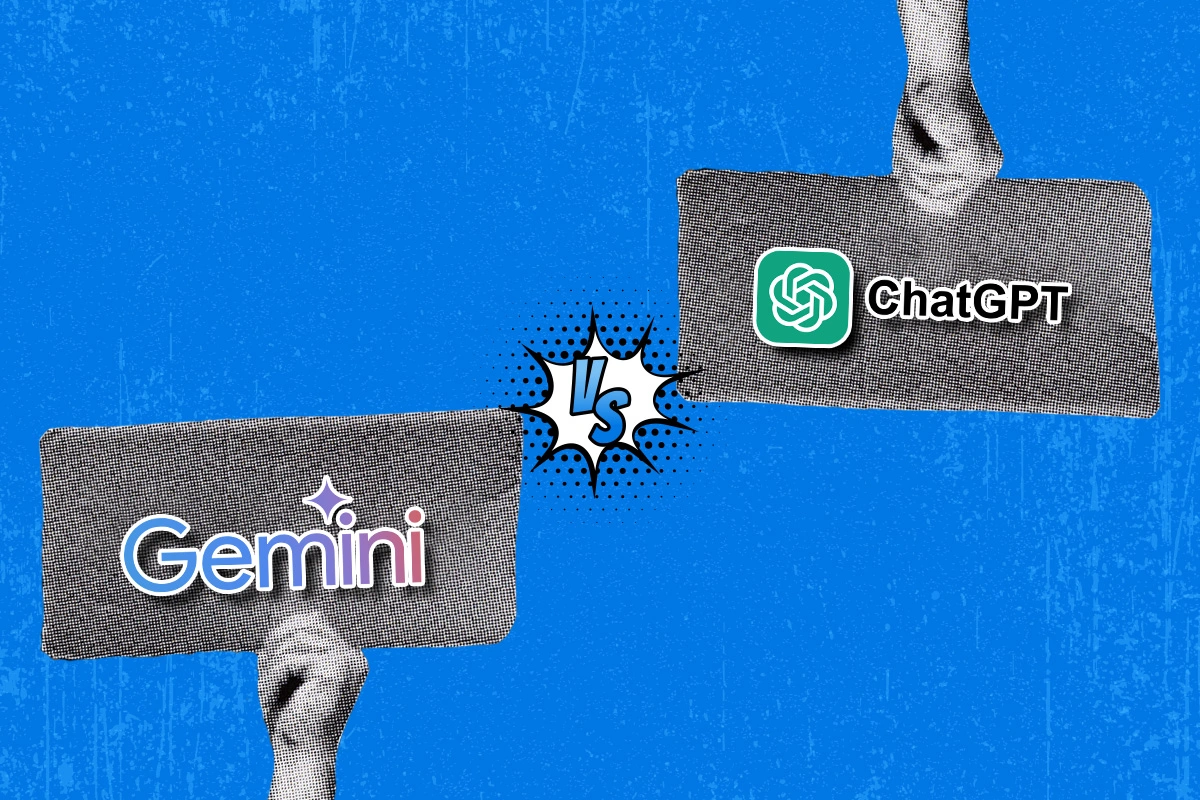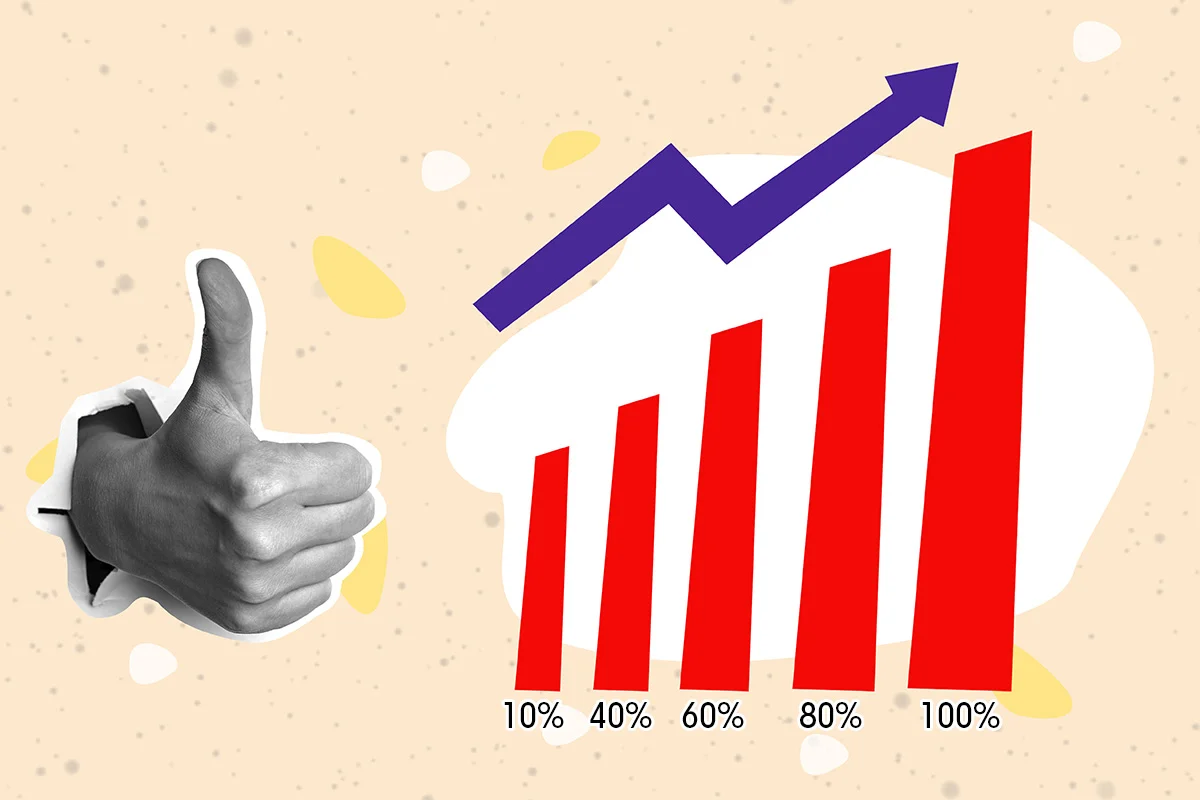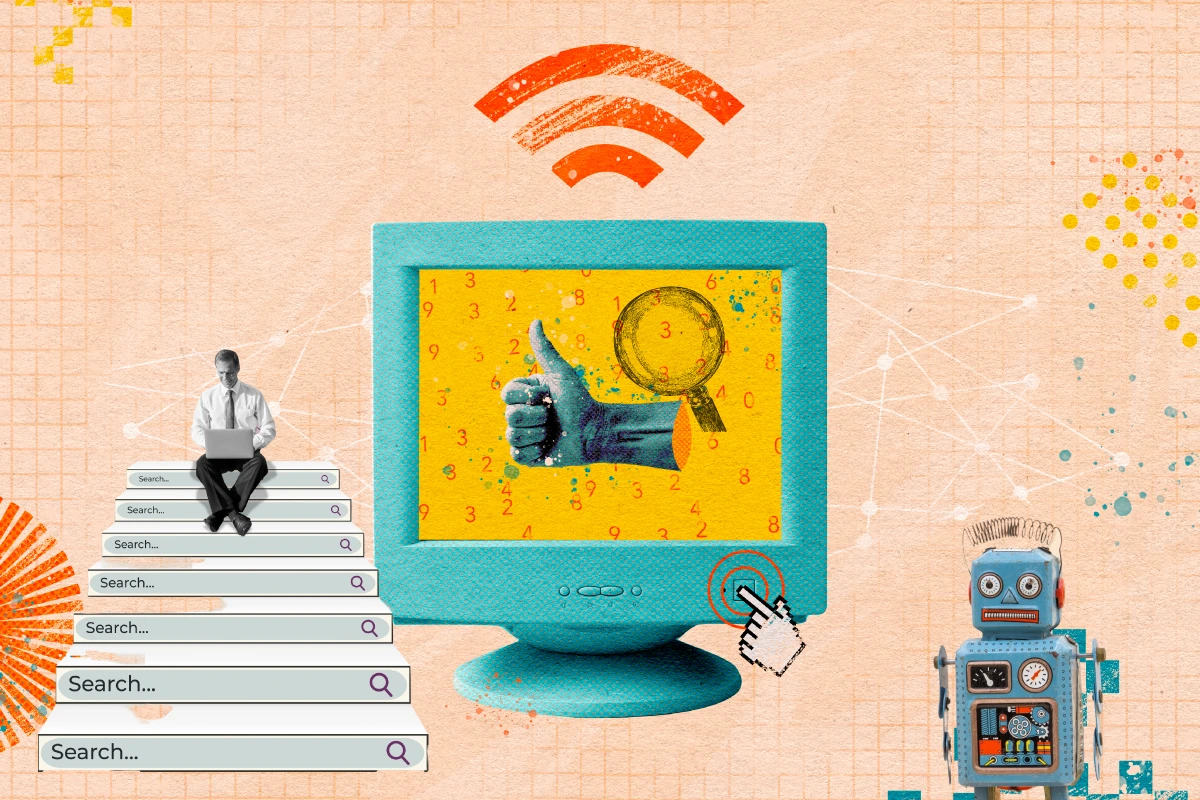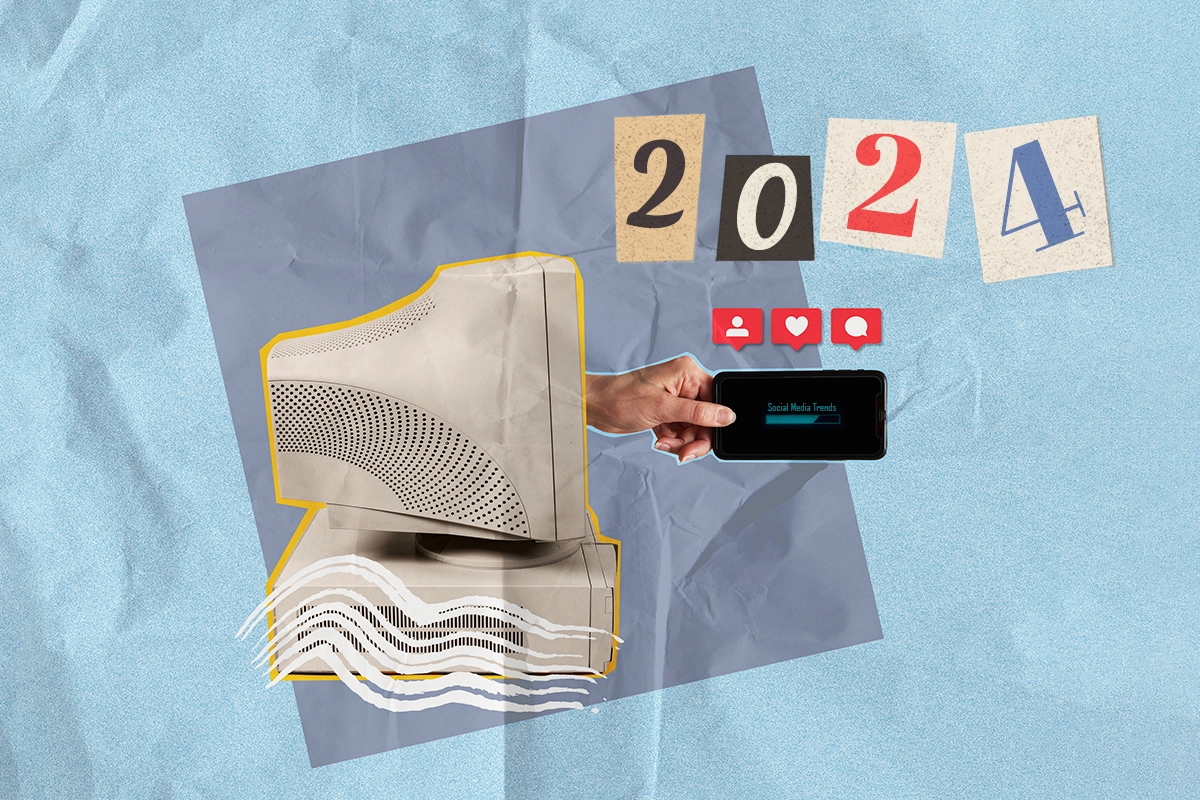Introduction to the Marketing Funnel
In simple terms, the marketing funnel is the customer journey from the initial stage of intent to the stage of final purchase of the product. It’s the customer journey map for buying the product. The funnel shows the buying stages people go through after becoming aware of the product or service of the business.
Quick insights about the marketing funnel.
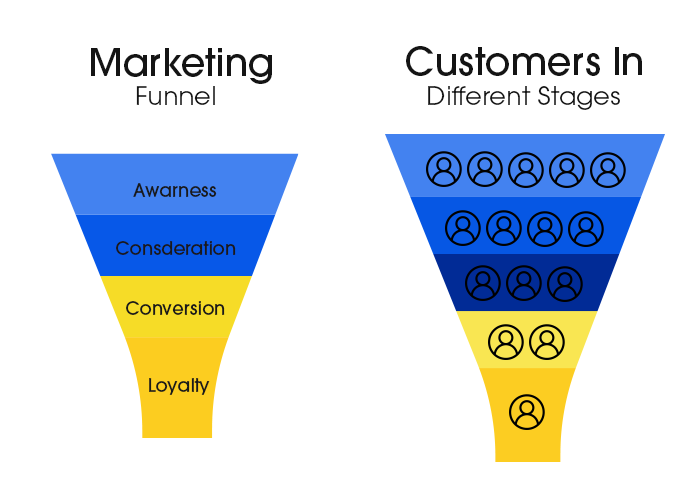
The shape of the funnel shows a gradual reduction in the size of the audience as the customer moves closer to the purchasing process. It clearly shows that the most qualitative leads actually buy the product.
In real-life scenarios, customer journeys are highly complex due to many factors. However, the marketing funnel offers a simplified presentation for marketers to make the best decision when crafting a suitable marketing plan.
A marketing funnel can be utilized:
– For recognizing the target audience
– Determination of the customer’s journey shortcomings and fixing them.
– Developing a successful marketing plan for generating more revenue.
This is just a simple explanation of the marketing funnel. Now let’s understand what drives new-age startups to adopt a digital marketing funnel in place of a traditional one.
Startups and Digital Marketing Funnel: Growth from Traditional to Digital
The fast internet connectivity and evolving start-ups around the globe have led to the adoption of a digital marketing funnel in place of a traditional one. In 2021, there were more than 4.9 billion people connected to the internet, representing more than 63% of the world’s population.
The number of people who own smartphones has also increased considerably. In 2020, smartphone users were responsible for over 50% of internet traffic. The main destinations visited by the users were Google, YouTube, Amazon, and Facebook.
The huge amount of data at their fingertips naturally brought about a change in the buying behavior of the customers. The change in the buying behavior of the audience is a crucial marketing element and calls for a smart change in the traditional marketing approach. Also, drastic data-driven changes in the start-up business world have made traditional marketing funnels unsuitable to survive in the competitive environment.
Let’s see some differences between the traditional and new digital marketing funnels.

- If you see a customer’s journey the traditional way begins with making people aware of your business and ends with a sale. While the new funnel ends with awareness again.
- The new approach is vastly non-linear and, at multiple levels, demands smart decision-making. While the traditional funnel is vastly linear.
- The traditional method has only four steps in its customer cycle. While the new funnel has many more steps.
- The old way remains the same for universal user behaviour, while the digital funnel concentrates on specific user behavior.
- The new funnel provides assistance 24/7 using tools like FAQs, chatbots, and guides. It uses artificial intelligence and machine learning (AI and ML) to create data-backed marketing campaigns. The traditional way has no access to these technologies.
- The digital marketing funnel uses social media, email campaigns, and analytics for deeper insights to provide better clarity about the customer’s journey to buying the product or service. Traditional methods do not use these methods.
Now the customer is fully equipped with advanced resources and live reviews on Google and YouTube. In seconds, they can make better purchase decisions, powered by product articles and reviews. However, the fundamental concept is the same for the customer’s journey from being prospective to becoming a final purchaser. What has changed is the path to achieving the end result.
The above gap clearly outlines the implications of a digital marketing funnel in place of a traditional funnel. The new marketers should be well-informed about the new changes in the marketing funnel, ensuring better conversion optimization and revenue in return.
Let’s explore the series of benefits and some types of marketing funnels for a deeper understanding of their adoption in the current start-up world. Always remember that an efficient marketing funnel ensures the new heights of your startup story. Before diving into the analytical world of funnels, let’s see some customer and organisational benefits of an efficient marketing funnel.
Benefits of Digital Marketing Funnels for Startups
- Better customer experience: The information collected at different funnel stages helps in creating personalized results. This helps in continuous experience improvement.
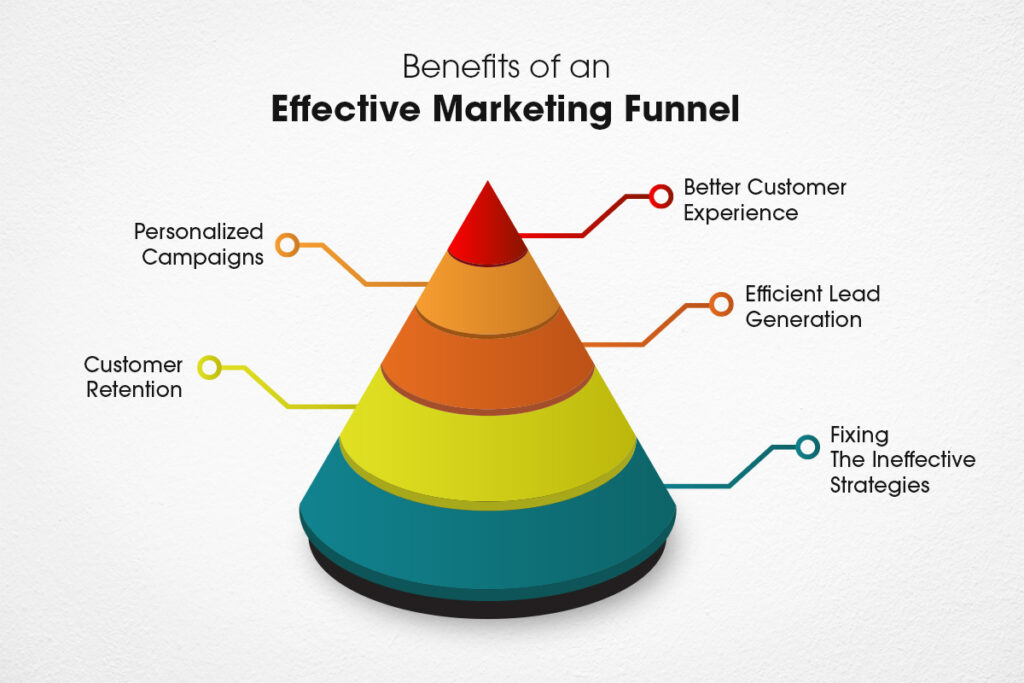
- Efficient Lead Generation: We all know that only popular leads move from one stage to another. This clearly means companies can easily target their potential customers.
- Fixing the ineffective strategies: It’s easy to capture ineffective strategies by checking analytics and campaign results at different funnel levels. The smart funnel evaluation saves resources and aids in strategy optimization.
- Personalized Campaigns: A digital marketing funnel helps in creating personalized campaigns. As suggested by McKinsey & Company, 71% of the audience expects personalized interactions. In recent years personalized ones have delivered exponential revenues to the company.
- Customer Retention: The bottom-of-the-funnel design to convert paying customers into existing customers means retaining them for a longer duration in the lifecycle of the company.
The positive sides are unlimited. However, casting an efficient funnel requires deep market research and experience about the customer’s journey. No matter how diligent the marketers are, it’s natural to lose some customers at the end of the stage. The only thing that matters is how detailed the approach is, the choice of the funnel we made, and the analytics we use to make the profitable funnel.
Choosing the Right Fit for Your Marketing Goals
- 1.Hourglass Marketing Funnel
The hourglass marketing funnel is the most significant marketing funnel. It concentrates on building long-term relationships with the customer.
For your convenience, you can segregate the stages, but broadly the main stages, are Awareness, Engagement, Consideraton and Conversion. Unlike traditional marketing funnel it involves the Retention or Loyalty Stage as the most important one for retaining the customer for a maximum period of time.
The hourglass funnel involves both the pre-purchase phase and the post-purchase phase stages. Let’s take a swift insight into both phases.
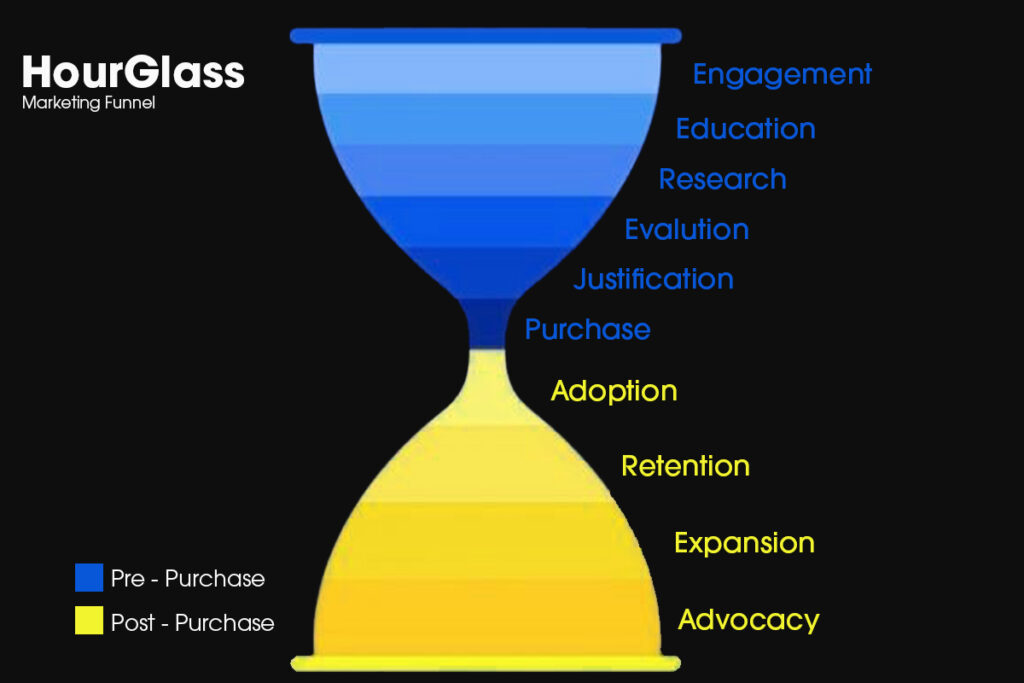
Pre-purchase phase: A comprehensive marketing techniques for the customer’s journey.
- Engagement: The objective of engagement is to establish and enhance brand recognition.
- Education: Problem Identification
- Research: Working for a solution.
- Evaluation: Analyze the effectiveness of a product or service in addressing a specific issue.
- Justification: Making the decision to buy the product.
Post-purchase phase: It’s about building a loyalty loop that customers share with a brand for a long period of time.
- Adoption: Utilizing a product or service.
- Retention: Determining levels of satisfaction and achievement.
- Expansion: Up-sell and cross-sell.
- Advocacy: Loyalty loop and trust.
2.The Looping Marketing Funnel
The concept of the loyalty loop focuses on customer retention and maintaining customer loyalty. It place emphasis on the active involvement and continuous involvement with the brand. This method saves the cost and time consuming efforts of the marketing team. Stages include:
- Awareness: Insight about the particular issue.
- Consideration: Discovering the solution by analysing the previous stage.
- Purchase: The final purchase of the product.
- Loyalty: Building a constant loop to increase the sales of the company.
-
3.The Micro Moment Funnel (The Google Funnel)
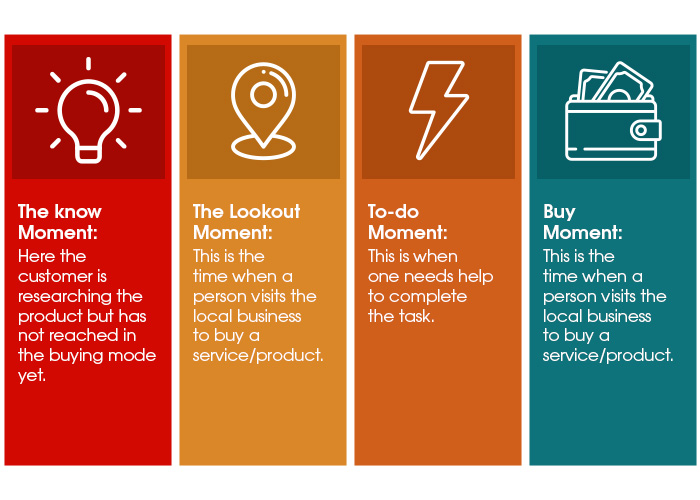
This model is inspired by the small moments customer make while making a purchase in the online market place. This concept, introduced by the Google, is a breakthrough in evaluating the funnel process more deeply facilitating better insights about customer interaction with the product. It keeps an eye on the small activities or the consumer behavior likes or dislikes while making a purchase.
The study of small moments allows the marketers to capture the potential opportunities for making killer strategies. A good planner considers all the micro moments of the consumer when making a realistic plan.
Without a doubt, you can easily conclude that this funnel is the deep mind of the consumer as his ups and downs go in the journey.
This funnel drives deep in the mind of the consumer.
- The know Moment: Here the customer is researching the product but has not reached the buying mode yet.
- The Lookout Moment: This is the time when a person visits a local business to buy a service/product.
- To-do Moment: This is when one needs help to complete the task.
- Buy Moment: Decided to buy the product but needs help figuring out what to buy and when to buy.
The goal of the company defines the choice. The marketing goal of the company influences the choice of the type of funnel. Also, the changing ways of customer interaction demand the adoption of different types of funnels at different times. But one thing is clear at various stages humans care about the entire experience of buying the product, not just sales.
The Good Marketer knows each stage is the stage of sales.
Conclusion
You can get to your goals faster with the help of a digital marketing funnel. It lets you make highly tailored ads and campaigns that are very specific to each customer, which helps you get and keep more customers, increase conversion rates, and work more efficiently.
Start-ups should evaluate their marketing funnels to ensure that they are taking full benefits of a digitized marketing funnel. Evaluation of data insights from different stages of the target audience helps in creating an effective funnel that in return increases sales. Everything has its drawbacks but the adoption of a new funnel over traditional with countless benefits of micro-management at every step of the buying journey is sure to deliver relentless growth to the company.

